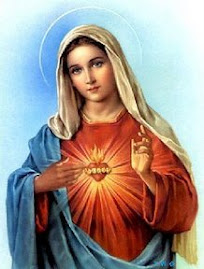 "Another fabulous book, which like If On A Winter's Night A Traveller . . . defies description. The denouement is as glorious as it nearly defies description."
"Another fabulous book, which like If On A Winter's Night A Traveller . . . defies description. The denouement is as glorious as it nearly defies description."This book is incredible! It's written by the great G.K. Chesterton who, by the way, is severely underrated. He is one of the finest authors I have ever encountered and it is tragic that he is mostly only known by Catholics. Yes, he was a Catholic and one of the finest Catholic writers that ever lived but beyond that he is simply a fantastic author and it is a tragedy that the majority of the population is not acquainted with his work.
This book is no disappointment, in fact it is one of the best books I have ever read. It does indeed defy description. I came upon a review of this work by Kate Christensen which I think says it best: "It's a wacky, nightmarish, deliriously well-written adventure story for grownups in which nothing is what it seems and everyone wears a mask, whether figurative or literal."


Now, don't let the word nightmare scare you off. After reading Frankenstein I was ready for something a little lighter and this certainly fit the bill. It is positively hilarious in its brilliance.
Also, everyone who aspires to be an artist or author, particularly poet, absolutely must read at least the first chapter of this book. Though by the end of the first chapter you will probably be hooked.
Some great quotes (and it was hard to pick just a few, I literally have 5 full pages of brilliant quotes from this book):
- "'Your offer,' he said, 'is far too idiotic to be declined.'"
- "Being surrounded with every conceivable kind of revolt from
 infancy, Gabriel had to revolt into something, so he revolted into the only thing left - sanity."
infancy, Gabriel had to revolt into something, so he revolted into the only thing left - sanity." - "It seemed almost as if all friendly words were to him lifeless conveniences, and his only life was hate."
- "Like any man he was coward enough to fear great force; but he was not quite coward enough to admire it."
- "But he did feel himself as the ambassador of all these common and kindly people in the street, who every day marched into battle to the music of the barrel-organ. And this high pride in being human had lifted him unaccountably to an infinite height above the monstrous men around him. For an instant, at least, he looked down upon all their sprawling eccentricities from the starry pinnacle of the commonplace."
- "This very pride in keeping his word was that he was keeping it to miscreants."
- "The devils might have captured heaven, but they had not yet captured the cross."

- "Energy, he said, was the All. He was lame, shortsighted, and partially paralytic."
- "always be comic in a tragedy. What the deuce else can you do?"







